Dalai Lama

WHAT DO YOU do when the democratic process delivers the power of the presidency to an authoritarian leader with the strategic impulse control of a 2-year-old?
Here are a few responses I’ve observed.
OPTION 1: The Ostrich. Bury one’s head in the sand until the annoyances pass. The virulent rhetoric of Mr. Trump’s campaign, combined with his appointees and advisers, make this option available only to men of European decent. (White women may cover their heads, but shouldn’t bury them completely.)
OPTION 2: The Spaniel. Fluff up one’s coat and appear clean and eager on the doorstep of the new master. Hope for the best; hope for a bone. This option is supported by many who are well-meaning, are part of the political elite, or are dangerously naive.
OPTION 3: The Cockroach. When the light comes on, scatter into the street with a sign saying “Not My President.” Or simply hide in a dark corner hoping to pass the coming wrath undetected. This escape behavior is instinctual in creatures that are startled or undeveloped.
Since the wee hours of Nov. 9, I’ve exhibited most of these behaviors myself.
But as a Christian, I’m not allowed to live in illusions for long. In Paul’s “letter of tears,” written to the fledgling church at Corinth, he wrote, “We cannot do anything against the truth, but only for the truth” (2 Corinthians 13:8). Therefore, existing in a “post-truth” state is not an option.
Americans are deeply disillusioned about the state of our nation. The fundamental optimism of the “American dream” has not matched reality for at least three generations. American optimism has always been partly delusion, as evidenced by the experiences of those defined outside of it or on whose backs the “great good” was built.
An election, however, is supposed to be a tool for the nonviolent transfer and distribution of power, not a therapy session to deal with disillusionment.

Receiving a prestigious human rights prize, an Iraqi lawmaker, who gained international attention for her oppressed Yazidi religious minority, decried the Trump administration’s “unfair” executive order on immigration.
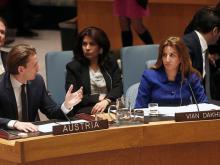
As the only female Yazidi in the Iraqi Parliament, Dakhil fought tirelessly for international assistance to stop the violence, including sexual slavery, targeting her beleaguered people.
Now she has been awarded the Lantos Human Rights Prize in Washington, D.C. But she is unlikely to make the ceremony on Feb. 8, since President Donald Trump banned all travelers from Iraq.
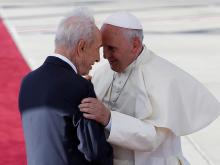
Peres, who was 93, was the last major surviving founder of Israel, and evolved from a hawkish defender of the Jewish state to a champion of the two-state solution in which Israelis and Palestinians would co-exist in peace.
Religious leaders remember him for reaching out to people he once considered his enemies.
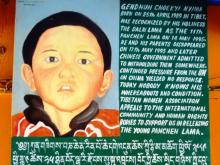
Gedhun Choekyi Nyima was a six-year-old boy when he disappeared from his home in Tibet in 1995. China’s government was the culprit, abducting him three days after the Dalai Lama had proclaimed him the 11th incarnation of the Panchen Lama. Twenty-one years after this unconscionable action, he remains disappeared, with Beijing claiming he is in its custody.
Countless individuals endure a similar fate across the globe, typically at the hands of governments that repress human rights.
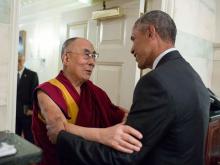
President Obama met behind closed doors with the Dalai Lama on June 15 in a White House meeting carefully designed to acknowledge the Tibetan leader’s importance as a global spiritual figure while not according him a head-of-state status that might further provoke China.
The White House said the Dalai Lama expressed his condolences for the shooting attack in Orlando on June 12, and the two men talked about climate change — an issue of particular importance in the Dalai Lama’s Himalayan home.
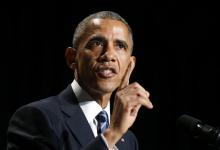
President Obama on Feb. 5 called for an emphasis on what is just about the world’s religions as a way to counter the ways faith has been distorted across the globe.
“We see faith driving us to do right,” he said to more than 3,500 people attending the annual National Prayer Breakfast. “But we also see faith being twisted and distorted, used as a wedge — or worse, sometimes used as a weapon.”
He urged believers of all faiths to practice humility, support church-state separation and adhere to the Golden Rule as ways to keep religion in its proper context.
“As people of faith, we are summoned to push back against those who try to distort our religion — any religion — for their own nihilistic ends,” Obama said.
“Here at home and around the world we will constantly reaffirm that fundamental freedom: freedom of religion, the right to practice our faith how we choose, to change our faith if we choose, to practice no faith at all if we choose, and to do so free of persecution and fear and discrimination.”
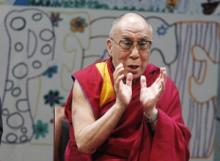
China warned the United States on Feb. 2 that it was opposed to any country meeting the Dalai Lama “in any manner” after the White House said U.S. President Barack Obama would attend an event with the exiled Tibetan spiritual leader whom Beijing brands a separatist.
The White House said last week that Obama would deliver remarks at a Feb. 5 prayer breakfast in Washington about the importance of religious freedom. The Dalai Lama is due to attend.
“China is opposed to any nation or government using the Tibet issue to interfere in China’s domestic affairs, and opposed to any country’s leader meeting with the Dalai Lama in any manner,” Chinese Foreign Ministry spokesman Hong Lei said at a daily news briefing.
“China hopes the U.S. side abides by its promises on the Tibet issue, and proceeds to appropriately handle the issue on the basis of the overall condition of bilateral relations.”
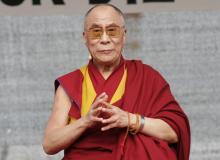
The Dalai Lama said Dec. 11 that he would not meet Pope Francis while in Rome for a summit of Nobel Peace Prize winners.
“The Vatican administration says it is not possible because it could cause problems,” the Dalai Lama said, hinting that the Vatican may be unwilling to irk China, a country with which it wants to engage and perhaps re-establish diplomatic relations.
But the Vatican’s chief spokesman, the Rev. Federico Lombardi, declined to say whether the pope had personally turned down a request for a meeting with the spiritual leader of the Tibetan Buddhists.
“Pope Francis obviously holds the Dalai Lama in very high regard, but he will not be meeting any of the Nobel laureates,” Lombardi told journalists.
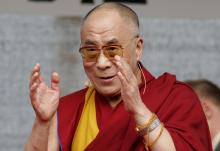
Historically, Christianity hasn’t been very open to the idea of being influenced by other religions. In the early days of the faith, we borrowed from Hellenism, Zoroastrianism, Gnosticism, Judaism and various “pagan” religions, repurposing their symbols to mean something new. Following the adoption of Christianity as the official religion of the Roman Empire, we focused more on converting others to our faith, or at least denigrating the legitimacy of other faiths to establish ours as superior.
Oh, but times, they are a’changin.’
Our numbers are down, our influence continues to wane, and we’re struggling with what I call in “postChristian” both an identity crisis and a credibility crisis. The good news is that, in this newly humbled state, lies a glimmer of opportunity. Not the kind we’ve had previously, to once again dominate the cultural landscape. That time has passed. Rather, as more of us within the Christian faith take less for granted, we’re asking harder questions:
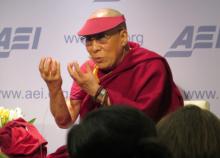
Some of the brightest pro-business minds in the nation prodded the Dalai Lama on Thursday to offer a warm endorsement of capitalism.
But during an appearance by the spiritual leader of Tibetan Buddhism at the American Enterprise Institute, one of the world’s most stalwart and, in conservative circles, respected free enterprise think tanks, they came up short.
The Dalai Lama was the star participant in a morning of panels on “moral free enterprise” and “human happiness.”
Asked by AEI President Arthur Brooks and Columbia Business School Dean Glenn Hubbard whether he agrees that the free enterprise system is the most moral of economic systems, and why he thinks the U.S. is the richest nation on earth, the Dalai Lama answered in broken English with his own question: What do you mean by rich?
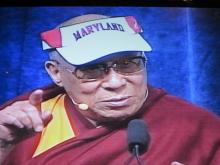
His English was terribly broken, and punctuated by sudden fits of giggles. But for nearly an hour, the Dalai Lama entranced an arena full of admirers, who said his message came across just fine.
The exiled spiritual leader of Tibet, speaking to an audience of 15,000 at the University of Maryland Tuesday, described himself as “a simple Buddhist monk” with a simple message: We are all human beings and should be good to one another.
“I look at you,” he said, surveying the crowd, a University of Maryland visor crowning his head. “All human beings. No differences.”
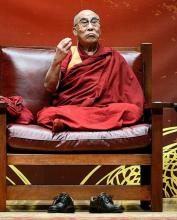
SYRACUSE, N.Y. — Lots of rock stars expect cushy perks at the venues where they perform. Requests can include special food and drink, music, video games and even a puppy to play fetch.
For the Dalai Lama, it’s all about the oversized chair.
Syracuse University requested the special seating for the spiritual leader of Tibet who spoke on campus Monday, and it’s obvious he enjoyed the spacious accommodations.
As he should. The red leather and wood Stickley chair was made especially for him — three times.
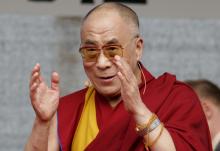
My friend, Doug, is not what I’d call a religious person. He grew up in church but has since taken to a combination of practicing martial arts, yoga, and independent study, primarily of Buddhist philosophy. In a lot of ways, his journey is a familiar one for younger adults today (he and I are both 40 so we don’t really qualify as “young” adults anymore).
Doug is, like I am, an intellectually curious guy. He follows my work pretty closely, and he is certainly open to other points of view, even if they’re not ones he embraces for his own life. Sometime we share ideas back and forth, but this quote from the Dalai Lama that he sent me recently really got my attention:
"All the world’s major religions, with their emphasis on love, compassion, patience, tolerance, and forgiveness can and do promote inner values. But the reality of the world today is that grounding ethics in religion is no longer adequate. This is why I am increasingly convinced that the time has come to find a way of thinking about spirituality and ethics beyond religion altogether."
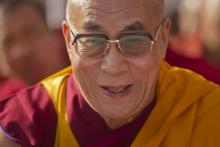
The Dalai Lama is best known for his commitment to Tibetan autonomy from China and his message of spirituality, nonviolence and peace that has made him a best-selling author and a speaker who can pack entire arenas.
But somewhat under the radar screen, the Tibetan Buddhist leader and Nobel Prize laureate has also had an abiding interest in the intersection of science and religion.
That interest won Tenzin Gyatso, the 14th Dalai Lama, the 2012 Templeton Prize on Thursday (March 29), a $1.7 million award that is often described as the most prestigious award in religion.
Apart from the Dalai Lama, who reportedly had never heard of him until earlier this week, Tiger Woods is the most famous Buddhist on the planet.
But until Woods invoked his Buddhist identity during a televised mea culpa for cheating on his wife and a spectacular fall from grace, like most of his fans, I had no idea the golfer was a follower of the Eight Fold Path.